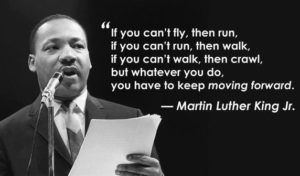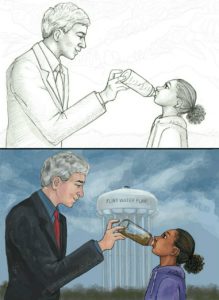“You were born into a society which spelled out with brutal clarity, and in as many ways as possible, that you were a worthless human being. You were not expected to aspire to existence: you were expected to make peace with mediocrity.” (The Fire Next Time, James Baldwin)
For my entire college career I have felt as if I had to constantly prove my place among the academic community in an environment where I am supposed to become more academically advanced and challenged. Going to school and getting an education is the one thing that was always made clear to me by my family and teachers, this was the normal path that I was intended to take. However, I did not see another side of this until I went away to college, where I was visible the minority. Everyday I go to class, I am most likely going to be the representation of the minority population that exits on campus. This may seem as a complaint, however, it is far from that. This situation has helped me realized that even though for me it is normal to be doing what I am doing, in reality the problems that plagues my community has created a stereotype that overwhelm the success of me and my peers. Its heart breaking to realize that you have to work twice as hard in and outside the classroom to feel some recognition of what you have been doing just because you are part of the population that has “made it out”, even though the circumstances are different.
As hard as this is for me to accept, it is the reality of things, it is my day to day reality. After watching a Donald Trump rally in Ohio, I realized why young black college students like myself, has to fight for a place in the college environment. Watching Trump stand before an all white audience and proclaim that, “no housing, no homes, no ownership. And I ask you this, I ask you this- crime, all of the problems- to the African Americans, who I employ, what the hell do you have to lose?”, These comments are a reflection of the society as a whole, while the crowd cheers upon hearing some generalize, stereotype and insult an entire group of people. It then made a lot of sense to me why people at school are often taken back my intelligence, because we have terrible schools, we are uneducated and we are all criminals therefore we have nothing to lose when worse comes to worse.
Historically, we were not meant for success, we were not even considered to be humans. But looking back through history and the writings of James Baldwin and Stokely Carmichael & Charles Hamilton, we must recognize where we come from in order to understand our place in society today. When James Baldwin says, “well, the black man has functioned in the white mans world as a fixed star, as an immovable pillar: and as he moves out of his place, heaven and earth are shaken to their foundations”, we must understand where that comes from and why it is so dangerous to see politicians spew these stereotypical rhetorics that brings out the worse of society. When I fight for my place my college i’m continuing the work that my ancestors created for me, I am establishing my self worth and the worth of those who will come after me, and the empowerment of black knowledge, power and excellence.




